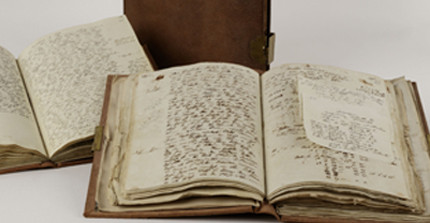The American Travel Journals
Alexander von Humboldt's Lifelong Project
Project Director„“In the American travel journals, we can recognize the formation of modernity in the context of the history of science. Alexander von Humboldt spoke of a “happy revolution.” And we can see this, both in the area of natural sciences – the journals contain field research in the modern sense – as well as in cultural studies. He set completely new standards for example when studying indigenous cultures on site.” “
Alexander von Humboldt’s travel journals are without a question a monument of late-eighteenth- and early-nineteenth-century Germany, the most important and significant document in terms of the history of science as well as travel literature, outstanding on both a national and international scale, and the most influential work both in political and social terms.
These journals cover the years between 1799 and 1804, when Humboldt and the Frenchman Aimé Bonpland took a five-year journey through the American tropics. The complete contents of the travel journals were previously unknown to the public and inaccessible, in terms of their multiple materiality, to researchers.
The state of the travel journals’ preservation can be described as breathtakingly good, given the rigors of shipment and the distances they have traveled. These materials are highly compelling and at the same time spectacular; they all have the character of impressive exhibition pieces and have the utmost value for research.
Humboldt studies are constituted in the travel journals first and foremost as the science of life, in its local, global, natural and cultural dimensions. The broad spectrum of natural and cultural studies, situated in distinct scientific disciplines, ranges from anthropology and astronomy to botany, cartography, climatology and contemporary history, from cultural anthropology and climate impact research to geography, geology and geophysics, from history to linguistics, from plant geography to philology, philosophy and physics, from seismology and soil science to zoology.
The travel journals mark a decisive paradigm change, both at the level of natural sciences and cultural studies, towards a temporalization and historicization of all knowledge in the context of emerging European modernity.
Humboldt becomes a pioneering thinker of a global modernity under the sign of open humanistic thought. His travel journals record the upheavals and transformations of his time with seismographic precision, prospectively defining future trajectories of emergent disciplines such as ancient American studies or plant geography.
In this context, Alexander von Humboldt’s travel journals are in their entirety a major monument in terms of science, literature, the history of science, and literary aesthetics, and they provided the foundation for Humboldt’s reputation - which continues to grow today - as a scientist, citizen of the world, and visionary for the twenty-first century.


